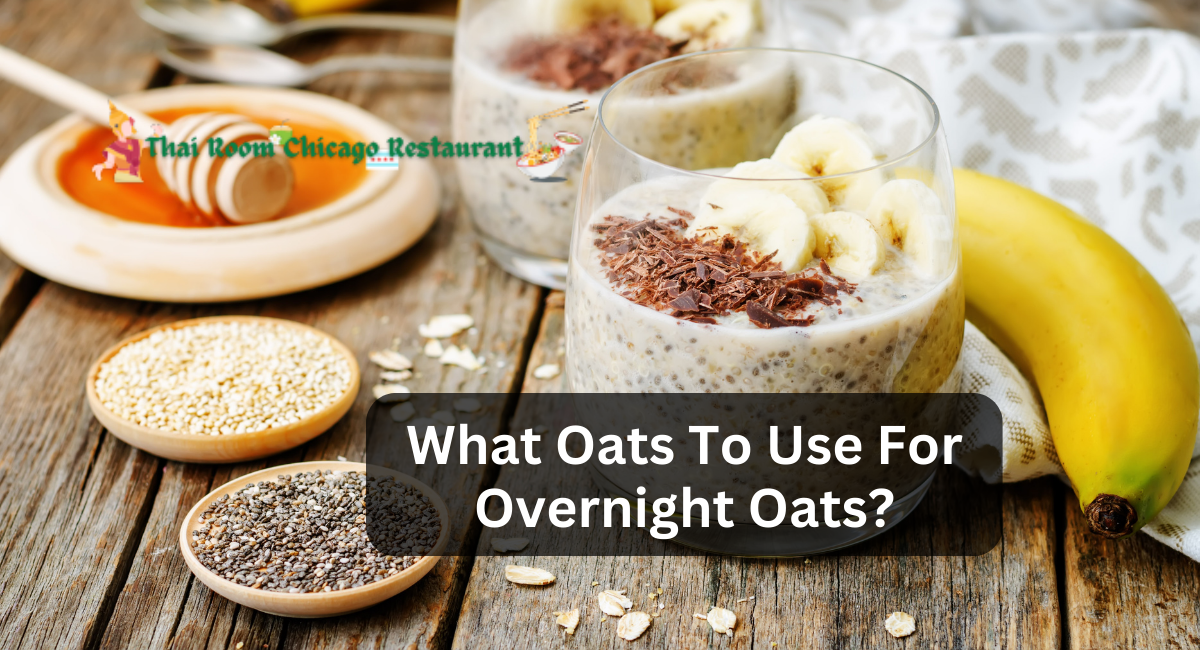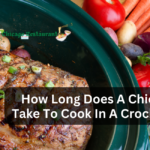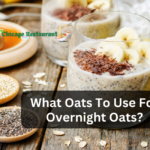For good reason, overnight oats have taken over the breakfast world. They’re quick, easy, and extremely versatile.
But have you ever wondered what kind of oats to use to make the best batch of overnight oats?
In this article, we’ll break down the many oat selections and assist you in selecting the best oats for your morning delight.
What Oats To Use For Overnight Oats?
When preparing overnight oats, you can use a variety of oats, although rolled oats are the most frequent and popular.
After soaking overnight, rolled oats absorb liquid well and soften to become smooth and creamy. You can use a variety of rolled oats, including:
Whole Oat Groats
This is the oat grain in its purest, most complete form. The shell has been removed, but the bran, endosperm, and germ are all still present.
This type of oat takes the longest to cook out of all the varieties – anything from 30-45 minutes.
Cooking oat groats on the stovetop, in a slow cooker, or in an Instant Pot is all options. Oat groats have a similar feel to rice or barley and are ideal in savory dishes like risotto or a grain-based salad.
Toast the grains before adding the liquid for maximum flavor. This adds a nutty flavor to a dish, which might improve its palatability.
Steel Cut Oats
Steel-cut oats are precisely what their name implies: steel-cut. They are made by using a steel blade to cut the full oat groat into 2-4 pieces.
This gives them a chewier texture than entire oat groats. Steel-cut oats are typically cooked in 20-30 minutes on the stovetop, in a slow cooker, or in an Instant Pot.
We do not recommend heating steel-cut oats in the microwave, using them for overnight oats, or creating granola with them. For a more nuanced flavor, toast steel-cut oats before cooking.
Scottish Oats
Scottish oats are less widespread in the United States than steel-cut oats, but they are no less wonderful!
They are manufactured by stone grinding the entire oat groat, making them the greatest porridge oats.
They take around 10 minutes to cook on the stovetop but may also be cooked in the microwave.
Old-Fashioned Oats / Rolled Oats
This is one of the most popular types of oats since it is so flexible. The oat groat is cooked before being rolled flat between steel rollers to make rolled oats.
Different manufacturers may produce different thicknesses of rolled oats, but they are all nutritionally and flavor-wise the same. When oats are thicker, they will be more chewy.
Stovetop oatmeal, overnight oats, baked goods, muesli, granola, pancakes, granola bars, energy bites, and even smoothies can all benefit from rolled oats. Cooking time for rolled oats on the stovetop is normally 5-10 minutes.
Quick Oats
Quick oats are a type of rolled oat. They are also steamed, but they are frequently rolled thinner and sliced into smaller pieces, providing them a bigger surface area and thus a quicker cooking time.
Quick oats cook in the microwave in one to three minutes and are great for making quick meals, overnight oats, baked goods, granola, energy bites, smoothies, and pancakes.
Keep this in mind when choosing which type of oat to use in your recipe. Quick oats tend to be more mushy.
Instant Oats
Instant oats are the most refined form of rolled oats. They are frequently pre-cooked, dried, and then broken into smaller pieces after steaming and rolling.
Instant oats cook the fastest and require only a quick soak in hot water or zap in the microwave to be ready for consumption.
Because instant oats are frequently found in processed foods, they are occasionally packaged with unneeded chemicals and sugars.
When shopping for instant oats, seek for nutrition labels that list only one ingredient: oats. Instant oats have a mushier texture than traditional oats.
Oat Bran
Oat bran is a byproduct of oat production. It’s not a whole grain because it’s just the top layer of the oat groat, but it’s still healthy because it has a lot of fiber.
It can be added to cereal, eaten as a hot porridge on its own, or used to increase fiber in baked goods.
Although oat bran provides an excellent nutritious boost, be mindful of the amount you use; too much oat bran can substantially alter the texture of your final product.
Oat Flour
Oat flour is nothing more than finely ground rolled oats. This means you can produce your own oat flour if you have a working food processor!
It is frequently used in baked goods and can be used to thicken products, though not as well as maize starch, potato starch, or wheat flour.
Fun fact: Baby oat cereal is made from finely crushed oats, so you can create your own at home!
Choosing the appropriate oats is the first step toward a good morning experience in the realm of overnight oats. Rolled oats have a creamy texture, but steel-cut oats have a chewier bite. Quick oats are the way to go when time is of the essence. Whatever oats you choose, keep in mind that the beauty of overnight oats is their adaptability.
Thanks for reading. I hope you find it helpful.










